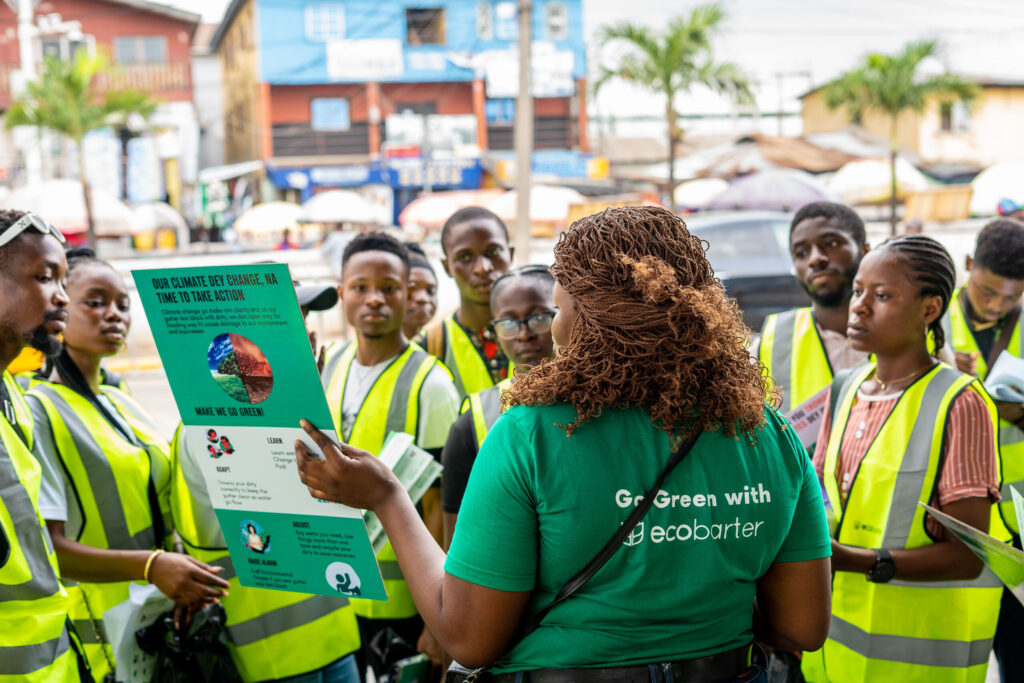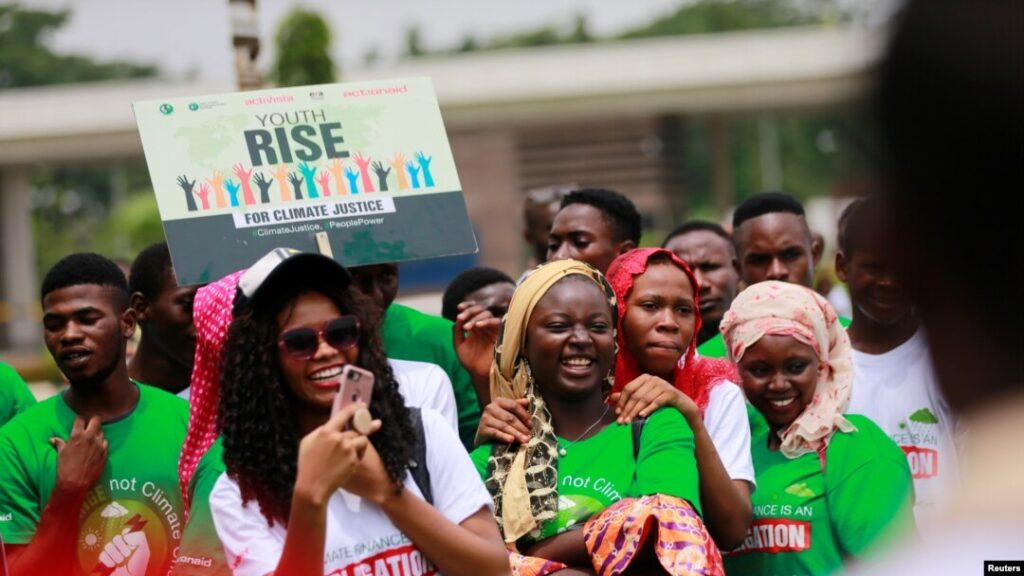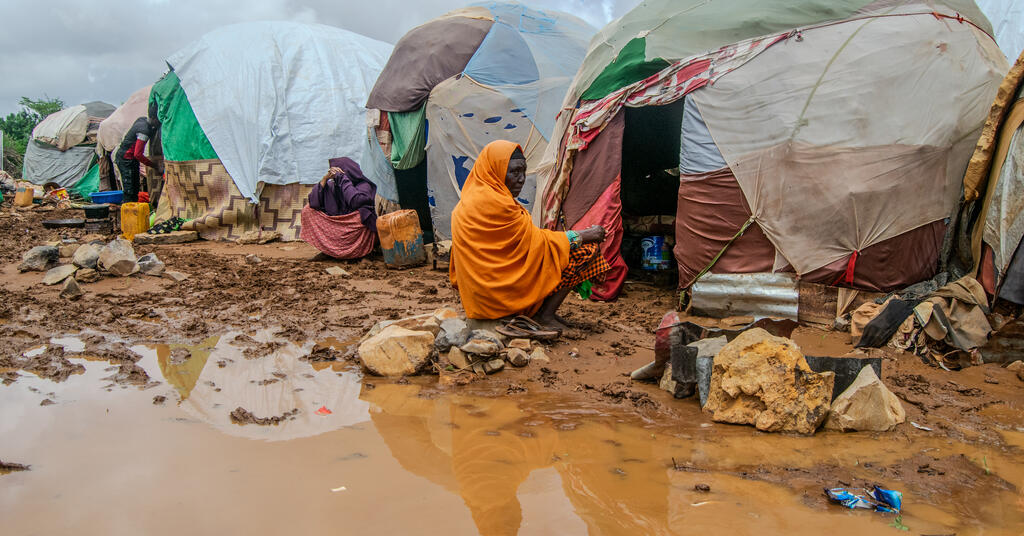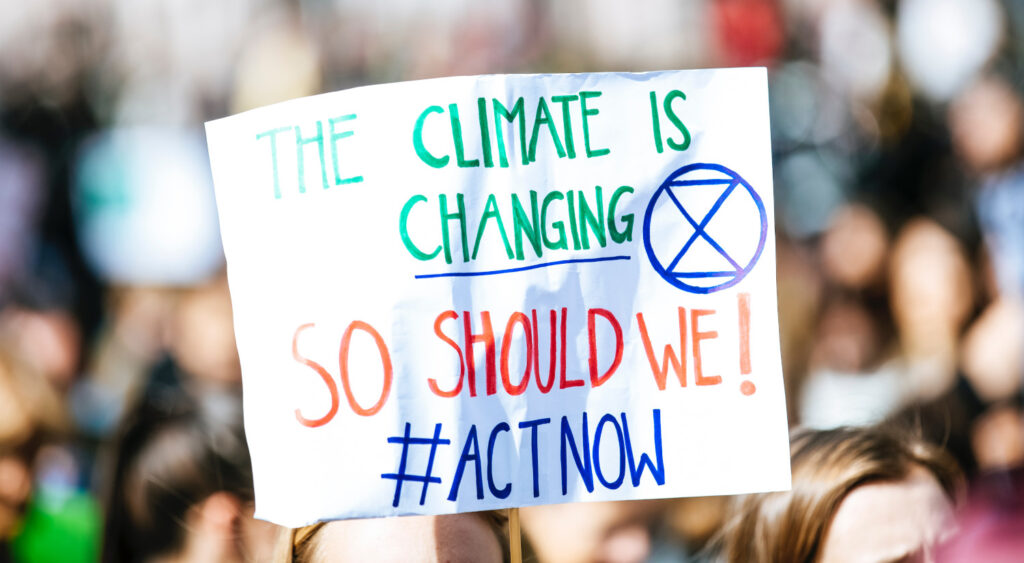Introduction
Climate change is broadly accepted as one of the most urgent global issues of the 21st century. It encompasses long-term alterations in temperature and weather patterns, primarily caused by human activities such as the burning of fossil fuels, deforestation, and industrial emissions (United Nations, 2025). The repercussions include rising sea levels, extreme weather phenomena, loss of biodiversity, and disruptions to food and water systems.
The Intergovernmental Panel on Climate Change (IPCC) cautions that even a slight increase in temperature exacerbates the severity of climate-related risks, including droughts, floods, and heatwaves (IPCC, 2022). The World Health Organization (WHO) projects that climate change will result in approximately 250,000 additional fatalities annually between 2030 and 2050 due to malnutrition, malaria, and heat stress (WHO, 2023).
Nigeria, the most populous nation in Africa, is particularly susceptible to climate change due to its geographical diversity, economic dependence on agriculture, and inadequate adaptive infrastructure. The northern regions are confronted with desertification and drought, while the southern coastal areas are increasingly impacted by flooding and erosion (Wikipedia, 2025; Devdiscourse, 2025).

The agricultural sector, which employs a substantial portion of the population, is especially vulnerable. Unpredictable rainfall and rising temperatures jeopardize crop yields and food security. Furthermore, climate-induced displacement and resource conflicts – particularly between farmers and herders – are becoming more prevalent (Climate Action Africa, 2023).
Purpose and Scope of the Seminar
This seminar investigates the convergence of climate change communication and environmental advocacy within Nigeria. Its objectives include:
- Examining the perceptions and discussions surrounding climate change in Nigerian society
- Identifying obstacles to effective communication and public involvement
- Looking into advocacy initiatives that promote awareness and policy changes
- Proposing strategic methods to enhance the visibility of environmental voices
Understanding Climate Change Communication
Climate change communication encompasses the strategic sharing of information pertaining to climate science, its impacts, adaptation strategies, and mitigation efforts. The primary objective is not merely to inform but also to shape public perception, encourage behavioral changes, and galvanize support for climate-related policies (Moser, 2010).
In Nigeria, where the effects of climate change are becoming more pronounced, effective communication is crucial for closing the divide between scientific insights and public comprehension (Umukoro & Ogwezi, 2022).
There are a number of communication theories elucidate how climate-related messages are perceived and acted upon, such as the Agenda-Setting Theory, which states that the media plays a significant role in determining which climate issues receive public and political focus (McQuail, 2010).
The Framing Theory, which focuses on the manner in which climate issues are framed – whether as a crisis or an opportunity – influences audience interpretation (Nisbet, 2009). The Diffusion of Innovations Theory, which describes how new concepts, such as renewable energy or sustainable agriculture, disseminate throughout society (Rogers, 2003), and the Two-Step Flow Theory which emphasizes the influence of opinion leaders and influencers in shaping public understanding (Evans et al., 2017).
These theoretical frameworks hold particular significance in Nigeria, where variations in media literacy and cultural beliefs frequently influence environmental perspectives.
Function of Media and Information Accessibility

The media acts as both a gatekeeper and a promoter of climate-related information:
- Radio and television continue to be prevalent, particularly in rural regions. Nevertheless, numerous journalists lack specialized training in environmental reporting (Umukoro & Ogwezi, 2022).
- Social media, blogs, and messaging applications are increasingly utilized to disseminate climate narratives, particularly among younger audiences (Alawade & Obun-Andy, 2024).
- Local radio stations and town hall meetings assist in customizing climate messages to fit specific cultural and linguistic contexts (Nwafor & Aghaebe, 2025).
Climate Change Realities in Nigeria
Nigeria’s diverse geography gives rise to region-specific climate challenges that are reshaping livelihoods and ecosystems. In the north, desertification is advancing rapidly, accompanied by prolonged droughts and extreme heat. These shifts have disrupted traditional rainfall patterns, undermining agricultural productivity and threatening food security.
Meanwhile, southern Nigeria grapples with rising sea levels, coastal erosion, and frequent flooding – particularly in the Niger Delta, where oil exploration and deforestation have compounded environmental risks. The Middle Belt faces intensifying resource conflicts, especially between farmers and herders, as dwindling water and arable land fuel competition and social tension.
Climate change is also destabilizing key sectors of Nigeria’s economy. Agriculture, which supports over 70% of the population through rain-fed farming, is increasingly vulnerable to erratic rainfall and temperature extremes that reduce crop yields and livestock viability.
Water resources are under pressure from both droughts and floods, with Lake Chad’s continued shrinkage affecting millions. Public health is at risk as rising temperatures and stagnant floodwaters facilitate the spread of diseases like malaria and cholera. Infrastructure, particularly in urban centers such as Lagos and Maiduguri, suffers repeated damage from flooding, weakening roads, bridges, and housing systems.
Socioeconomic vulnerabilities are deepening, with rural communities bearing the brunt due to limited access to climate information, poor infrastructure, and heavy reliance on natural resources. Women and youth, often excluded from decision-making processes, are disproportionately affected – especially in agriculture, health, and displacement contexts. In urban areas, the poor are concentrated in informal settlements prone to flooding, where drainage and waste management systems are inadequate, further amplifying their exposure to climate hazards.
Beyond climate change, Nigeria faces a cascade of environmental degradation. Deforestation has stripped away over 90% of the country’s original forest cover, accelerating erosion and biodiversity loss.
Plastic pollution clogs rivers and drainage systems, exacerbating urban flooding, while enforcement of environmental laws remains weak. Air pollution from gas flaring and vehicle emissions contributes to respiratory illnesses and intensifies climate warming, particularly in industrial and densely populated zones.
Despite the existence of robust policy frameworks such as the Climate Change Act (2021) and the National Adaptation Plan, Nigeria’s response remains uneven. Federal initiatives have prioritized carbon budgeting, methane reduction, and climate-smart agriculture, but state-level action is inconsistent and underfunded.
Many states lack dedicated climate desks or localized adaptation strategies. Civil society organizations and youth groups have stepped in to raise awareness and advocate for change, yet climate literacy remains low in rural areas, limiting the reach and impact of these efforts.
Channels and Tools for Climate Communication in Nigeria
Climate communication in Nigeria relies on a diverse mix of traditional, digital, community-based, and innovative channels to reach its varied population. Traditional media remains a vital conduit, especially in rural and semi-urban areas. Radio, in particular, is highly accessible and trusted, with community stations broadcasting in local dialects to disseminate climate alerts and adaptation strategies effectively (Adekaa et al., 2024).
Television offers visual storytelling through documentaries and expert interviews, although coverage is often limited by editorial priorities (Umukoro & Ogwezi, 2022). Print media, including newspapers and magazines, targets urban audiences and policymakers, with investigative journalism and environmental columns helping shape public discourse (Omu-Ngebo & Alegu, 2024). Despite their reach, traditional outlets frequently lack specialized training and consistent climate coverage.
Digital media and technology are transforming climate communication across Nigeria. Social media platforms such as X (formerly Twitter), Facebook, and TikTok are widely used for climate campaigns, youth mobilization, and real-time updates (Nwafor et al., 2024).
Messaging apps like WhatsApp and Telegram serve as digital town halls for NGOs and community networks (John, 2025), while online news platforms and climate-focused blogs provide alternative narratives and spotlight underreported issues (Alawade & Obun-Andy, 2024). However, digital media faces challenges including misinformation, limited internet access in remote areas, and algorithmic bias that can distort message reach.
Community engagement and indigenous communication strategies are essential for ensuring cultural relevance and grassroots impact. Oramedia – folk media forms such as storytelling, music, drama, and proverbs – resonate deeply with rural audiences and effectively convey climate messages in familiar formats (Nwafor & Aghaebe, 2025).
Religious institutions also play a pivotal role, framing climate stewardship as a moral and spiritual duty, thereby influencing large congregations (Onnoghen et al., 2024). Town hall forums, conducted in local languages, foster participatory dialogue and trust, enabling collaborative problem-solving at the community level (Sheshi & Yisa, 2024).
Innovative tools and approaches are increasingly being explored to enhance climate communication. Infographics and data visualizations simplify complex climate data, making it accessible to broader audiences (Ezeaka et al., 2024). SMS campaigns deliver climate alerts and educational content directly to mobile phones, especially in areas with poor connectivity (Climate Action Africa, 2024).
Environmental theatre and street drama use performance art to raise awareness in schools and public spaces (Ineji, 2024). Additionally, artificial intelligence is emerging as a powerful tool for climate modeling, audience targeting, and combating misinformation (Otuogha et al., 2025). These innovations help tailor messaging, improve engagement, and expand outreach across Nigeria’s diverse demographics.
Challenges in Climate Communication in Nigeria

Nigeria faces a complex landscape of challenges in climate communication, which hinder public understanding, engagement, and policy implementation. One of the most pressing issues is the spread of misinformation and climate denial. Despite mounting evidence of climate impacts, foreign-funded disinformation campaigns and fossil fuel interests continue to portray climate action as a Western imposition or economic threat.
Social media platforms amplify misleading narratives, including claims that climate change is a hoax or irrelevant to Africa’s development. Additionally, corporate greenwashing misleads the public into believing that sustainability efforts are more effective than they truly are. These tactics erode trust in scientific evidence and delay critical policy responses.
Language, literacy, and accessibility barriers further complicate climate communication efforts. Nigeria’s linguistic diversity-with over 500 indigenous languages-makes it difficult to translate technical climate terminology into locally understandable formats.
Many rural residents lack proficiency in English, which limits their access to climate information disseminated through formal media channels. Moreover, climate messages often rely on complex scientific language that alienates non-academic audiences and reduces message retention. To ensure inclusivity, it is essential to adapt communication strategies to local dialects and cultural contexts.
Institutional and policy support for climate communication remains uneven across Nigeria. While progressive frameworks such as the Climate Change Act and the National Adaptation Plan exist, their implementation is hindered by fragmented coordination among federal, state, and local agencies.
Many states lack dedicated climate communication units or trained personnel to drive awareness and engagement. Furthermore, climate education is not integrated into school curricula, leaving young people ill-equipped to understand or participate in climate-related initiatives. These gaps weaken the effectiveness of advocacy and limit the reach of climate messaging.
The media space also presents significant constraints. Environmental issues are frequently underreported or overshadowed by political news, reducing their visibility and perceived importance. Journalists often lack specialized training in climate science, which leads to oversimplified or inaccurate reporting. Sensationalism and editorial bias can distort climate narratives, undermining their credibility and impact. Strengthening media capacity through training and editorial support is vital to fostering accurate and sustained climate coverage.
Public disengagement and behavioral barriers pose additional challenges. Although awareness of climate change is growing, many Nigerians remain uninvolved in climate initiatives. For individuals facing economic hardship, climate change may seem abstract or secondary to immediate survival needs.
The lack of visible role models and community success stories further dampens motivation to act. Moreover, a low sense of personal efficacy-where individuals feel powerless to influence change-prevents behavioral shifts. Bridging the gap between awareness and action requires emotionally resonant messaging, community-driven solutions, and the cultivation of local champions who can inspire collective engagement.
Environmental Advocacy in Nigeria
The landscape of environmental advocacy in Nigeria has transitioned from sporadic protests to a vibrant movement that encompasses civil society, youth, media, and policy makers. Initially sparked by reactions to oil spills and deforestation in the Niger Delta, the focus of advocacy has now expanded to include climate justice, waste management, renewable energy, and the conservation of biodiversity (Ekhator, 2016).
During the 1980s and 1990s, organizations such as the Nigerian Conservation Foundation (NCF) and Environmental Rights Action (ERA) emerged, establishing a foundation for legal reforms and enhancing public awareness. Currently, advocacy efforts are characterized by inclusivity, technological integration, and a strong policy orientation.
Principal Actors and Movements for Environmental Advocacy in Nigeria
The driving force behind environmental advocacy in Nigeria is a varied coalition:
- Non-Governmental Organizations (NGOs): Entities such as NCF, Friends of the Environment (FOTE), and Women Initiative for Sustainable Environment (WISE) spearhead campaigns, conduct research, and engage in community outreach (EcoHubMap, 2025).
- Youth Movements: Activists like Adenike Oladosu and groups such as the Nigerian Youth Climate Coalition (NYCC) energize young Nigerians through climate strikes, digital initiatives, and educational programs (WISE Nigeria, 2025).
- Faith-Based Organizations: Religious institutions increasingly present environmental stewardship as a moral obligation, weaving climate-related messages into sermons and outreach efforts (Lekan Bakare Foundation, 2025).
- Media and Influencers: Social media figures like Taooma and platforms such as Climate Wednesday enhance climate narratives and galvanize public support (Voice of Nigeria (VON), 2025).
Some Major Impact and Achievements
- The enactment of the Climate Change Act (2021), the National Adaptation Plan, and various state-level climate policies.
- A rise in media attention and climate literacy, particularly among youth and urban demographics.
- Increased pressure on oil corporations and manufacturers to implement cleaner practices and provide compensation to affected communities.
- Nigerian activists are now involved in international discussions such as COP and African Climate Week, enhancing the visibility of local voices on global stages.
Case Studies of Environmental Advocacy in Nigeria
- Nigeria Reboot Campaign – Tearfund Nigeria
The Nigeria Reboot Campaign, initiated by Tearfund Nigeria, represents a faith-driven national advocacy effort focused on advancing environmentally sustainable policies in response to the COVID-19 pandemic. This initiative resulted in the creation of the Nigeria Green Papers, comprising 12 thematic policy documents that include 30 actionable recommendations.
These documents were showcased at prominent national events and disseminated through billboards, social media platforms, and church networks. The campaign effectively shaped policy discussions and contributed to the formulation of a waste management bill in Plateau State.
- #ClimateActionNigeria – Digital Media Advocacy
The #ClimateActionNigeria initiative exemplifies the influence of digital media in the realm of environmental advocacy. Through leveraging platforms such as Twitter, Facebook, and Instagram, the campaign successfully mobilized thousands of Nigerians-particularly the youth-to engage in discussions about climate change, advocate for eco-friendly policies, and take part in tree planting and recycling efforts. Research indicates that this digital engagement has significantly enhanced climate awareness and positively impacted public perceptions regarding sustainability.
- Mass Media Campaigns in Enugu State
A research study conducted in Enugu State indicated that mass media campaigns-including radio, television, and print-were effective in raising public awareness about environmental issues. Participants reported changes in behavior, such as reduced waste and increased energy conservation.
These campaigns were based on the Two-Step Flow Theory, which highlights the importance of opinion leaders in influencing public attitudes. The study suggests that messages should be tailored to local contexts and that collaboration between media and civil society should be strengthened.
- Youth-Led Climate Advocacy – ICCDI Africa
The International Climate Change Development Initiative (ICCDI Africa) initiated two programs aimed at youth engagement:
- African Activist on Climate Justice Project: Involved 500 students from seven states through climate education initiatives.
- Young Community Voices for Climate Justice: Engaged 120 young individuals in community outreach, tree planting activities, and policy advocacy efforts.
These programs enabled young Nigerians to serve as climate ambassadors and significantly impacted local government involvement in climate justice.
- Collaborative Artivism – CCHCC Project
The Connecting Communities and Heritages against Climate Change (CCHCC) project employed “artivism” – a blend of art and activism – to engage schoolchildren, legislators, and local communities. Through exhibitions and workshops, the initiative promoted inclusive dialogue and empowered youth to creatively articulate their climate concerns. Additionally, it shaped policy discussions by incorporating cultural heritage into climate advocacy approaches.
Strategic Recommendations for Strengthening Climate Communication and Advocacy in Nigeria

To build a climate-resilient Nigeria, enhancing climate literacy and public involvement must be a top priority. Integrating climate education into the curricula of primary, secondary, and tertiary institutions will lay a strong foundation for environmental awareness and action among future generations. Teachers and educators should be equipped with specialized training and resource materials to effectively deliver climate-related content.
Establishing climate clubs and ambassador programs within schools can foster peer-led learning and community engagement, while creative approaches such as storytelling and artivism can make climate issues more relatable and emotionally resonant-especially for young audiences.
Media remains a powerful tool for shaping public perception and driving climate action. Journalists and media professionals should receive training in climate science and reporting techniques to improve the accuracy and depth of coverage.
Media organizations can be encouraged to dedicate regular segments to environmental topics, including expert interviews, community stories, and climate updates. Folk media, or oramedia-such as drama, music, and storytelling-can be leveraged to reach rural audiences and embed climate messages within culturally familiar formats. Additionally, digital platforms like TikTok, WhatsApp, and YouTube offer dynamic avenues for youth engagement and the amplification of climate advocacy.
Policy-driven and inclusive approaches are essential to ensure that climate action is both effective and equitable. Nigeria must fully implement existing legislation, including the Climate Change Act (2021) and the National Adaptation Plan, with robust accountability mechanisms to track progress.
Climate considerations should be mainstreamed into development strategies across critical sectors such as agriculture, health, and security. Community-led adaptation initiatives that reflect local realities and incorporate indigenous knowledge can enhance resilience and ownership.
Inclusive governance is also vital-women, youth, and marginalized groups must be actively involved in climate-related decision-making processes. Finally, emerging technologies like artificial intelligence and data analytics can be harnessed to improve climate forecasting, boost public engagement, and combat misinformation.
Conclusion
Climate change is no longer a remote threat; it has become a tangible reality for millions of Nigerians. The environmental, economic, and social repercussions are significant and intensifying, ranging from desertification in the northern regions to flooding in the southern areas. This seminar has examined the role of communication and advocacy as essential instruments in addressing these pressing challenges.
In Nigeria, effective climate communication must be tailored to local contexts, inclusive, and emotionally impactful. It should bridge the divide between scientific insights and public comprehension, utilizing media, community involvement, and traditional storytelling to engage a variety of audiences. Conversely, advocacy needs to be strategic, collaborative, and focused on policy, rallying civil society, youth, and institutions to advocate for sustainable reforms.
The emergence of youth-led movements, digital campaigns, and grassroots initiatives indicates a rising momentum for climate justice. Nevertheless, obstacles such as misinformation, inadequate media resources, and institutional shortcomings remain. Tackling these issues necessitates cross-sector collaboration, investment in climate education, and the incorporation of climate objectives into national development strategies.
REFERENCES
Adejuwon, J. O. (2022). Climate change discourse in Nigerian newspapers: A content analysis. Journal of Environmental Media, 1(1), 45–58.
Alawade, S. O., & Obun-Andy, M. K. (2024). The role of media in shaping public perception of climate change. International Journal of Research and Innovation in Social Science, 8(1), 2442–2448.
Aminu, A. M. (2024). Integrating climate education into Nigerian school curricula: A policy imperative. Nigerian Journal of Environmental Education, 16(2), 45–58.
ANEEJ. (2021). The impact of climate change on the poor and vulnerable citizens and social protection in Nigeria. https://www.aneej.org
APRI. (2022). Mainstreaming climate resilience into Nigeria’s development agenda. Abuja: African Policy Research Institute.
Audu, L. O. (2024). Examining the effectiveness of indigenous language in climate change communication in selected communities of Federal Capital Territory, Abuja, Nigeria. ADSU Journal of Scientific Research, 12(1), 48–54.
Azu, A., & Alakwe, K. O. (2023). Communication and raising citizen’s consciousness of climate change challenges and adaptation in Nigeria. International Journal of Environment and Climate Change, 13(4), 203–219. https://doi.org/10.9734/IJECC/2023/v13i41728
Climate Action Africa. (2023). Climate change in Nigeria: Impacts and responses. https://climateaction.africa
Climate Action Africa. (2024). SMS campaigns for climate alerts and education. https://climateaction.africa
Corner, A., Shaw, C., & Clarke, J. (2018). Principles for effective communication and public engagement on climate change. Climate Outreach. https://www.climateoutreach.org
Devdiscourse. (2025, July 29). Devastating floods in Nigeria: A struggle against nature. https://www.devdiscourse.com
EcoHubMap. (2025). Environmental NGOs in Nigeria. https://www.ecohubmap.com/list/NGO/all/Nigeria
EcoSciGen. (2024). Community-led adaptation and indigenous knowledge systems in Nigeria. https://ecosscigen.org.ng/research/adaptation-strategies
Ekhator, E. O. (2016). The role of non-governmental organisations in the environmental justice paradigm in Nigeria. Nnamdi Azikiwe University Journal of International Law and Jurisprudence, 7(1), 156–172. https://www.ajol.info/index.php/naujilj/article/download/156737/146344
Environews Nigeria. (2025, July 28). Environmental stakeholders pledge to advocate for Nigeria’s carbon market framework.
Excellent Projects. (2024). The role of digital media in Nigerian environmental advocacy: A case study of #ClimateActionNigeria. https://excellentprojectz.com.ng/2024/12/29/the-role-of-digital-media-in-nigerian-environmental-advocacy-a-case-study-of-climateaction-nigeria/
Ezeaka, N. B., Nwodu, G. E., & Bartholomew, C. E. (2024). Climate change mitigation and adaptation strategies for Nigerian farmers: A communication approach. International Research in Material and Environment, 5(1), 1–8. https://doi.org/10.52589/IRME-6KQ28M2E
FactCheck Africa. (2025, March 8). The dangerous spread of climate change misinformation: Why facts matter.
Federal Ministry of Environment. (2022). National climate education and youth engagement strategy. Abuja: Department of Climate Change.
Federal Ministry of Environment. (2025). Climate Change Department. https://environment.gov.ng/climate-change/
Garba, R. A. (2025). Climate storytelling and artivism: Mobilizing youth for environmental justice in Nigeria. African Journal of Creative Advocacy, 3(1), 22–35.
ICCDI Africa. (2024, January 9). Empowering young climate advocates in Nigeria: ICCDI Africa’s pioneering initiative. https://aacj.africa/2024/01/09/young-climate-advocates-nigeria/
Ineji, B. U. (2024). Trado-modern communication in development programmes: The social and behaviour change mix-media approach to mobilisation against breast cancer in rural Nigeria. CRUTECH Journal of Communication, 5(1), 55–58.
Intergovernmental Panel on Climate Change. (2022). Climate change 2022: Impacts, adaptation and vulnerability. https://www.ipcc.ch/report/ar6/wg2/
John, S. G. (2025). Using social media for climate change mitigation and adaptation education in Nigeria. In Media and Communication Systems for Sustainability in Nigeria (pp. 123–143). Springer.
Labiru, M. A., et al. (2023). Public perception of climate change impact on health and environment in Taraba State, Nigeria. Journal of Meteorology and Climate Science, 22(1).
Moser, S. C. (2010). Communicating climate change: History, challenges, process and future directions. Wiley Interdisciplinary Reviews: Climate Change, 1(1), 31–53. https://doi.org/10.1002/wcc.11
Nigeria Final ADCOM Report. (2021). Adaptation Communication to the UNFCCC. https://climatechange.gov.ng/wp-content/uploads/2021/12/Nigeria-Final-ADCOM-Report.pdf
Nisbet, M. C. (2009). Communicating climate change: Why frames matter for public engagement. Environment: Science and Policy for Sustainable Development, 51(2), 12–23.
NISER. (2024). Climate variability and resource-based conflicts in Nigeria. https://niser.gov.ng
Nwafor, G. U., & Aghaebe, S. E. (2025). Communicating climate change adaptation and resilience strategies through oramedia forms for sustainable development in Nigeria. Journal of Environment, Climate, and Ecology, 2(1), 11–19. https://doi.org/10.69739/jece.v2i1.203
Nwafor, G. U., Aghaebe, S. E., Bartholomew, C. E., & Umuze, A. N. (2024). Investigating the effectiveness of TikTok in promoting public awareness and engagement on climate change adaptation and mitigation measures in Nigeria. Asian Journal of Education and Social Studies, 18(3), 101–116. https://doi.org/10.9734/ajess/2024/v50i121696
Ogbu, J. O., Okoro, N. M., & Chinweobo-Onuoha, N. (2025). Effectiveness of media campaigns in championing environmental sustainability in Nigeria: A study of Enugu State. African Journal of Educational Management, Teaching and Entrepreneurship Studies, 14(2). https://ajemates.org/index.php/ajemates/article/view/704
Olagunju, L. (2025, March 23). The war on truth: How climate disinformation threatens global action. TheCable.
Omu-Ngebo, B., & Alegu, J. C. (2024). Nigerian newspaper reportage of climate change: A content analysis of The Punch and The Guardian. International Journal of Sub-Saharan African Research, 2(2), 121–133.
Onnoghen, U. N., Nwafor, G. U., Odoh, C. C., Ewa, B. O., & Anabaraonye, B. (2024). The role of eco-musicology in enhancing climate resilience in Nigeria. Recent Archives of Environmental Studies, 5(1), 37–39.
Oramah, C. P., Ngwu, T. A., & Odimegwu, C. N. (2025). Addressing the impact of complex English use in communicating climate change in Nigerian communities through contextual understanding. Climate, 13(3), 56. https://doi.org/10.3390/cli13030056
Oyero, O. (2018). Strategic communication for climate change awareness and behavioural change in Ota Local Government of Ogun State. African Population Studies, 32(1), 4057–4070.
Rundmo, T. (2004). Explaining risk perception: An evaluation of cultural theory. Norwegian University of Science and Technology, Department of Psychology.
Spring, Ú. O., & Brauch, H. G. (2021). Climate rituals: Cultural response for climate change adaptations in Africa. In Decolonising Conflicts, Security, Peace, Gender, Environment and Development in the Anthropocene. Springer International Publishing.
Udeh, C. C. (2024). Traditional knowledge and cultural beliefs in climate adaptation strategies for food security and sustainable development in Nigeria’s semi-arid regions: A bibliometric analysis (1996–2023). International Journal of Geography and Regional Planning Research, 9(1), 13–27.
wa Thiong’o, N. (1986). Decolonising the mind: The politics of language in African literature. East African Educational Publishers Ltd.
Wodak, R., & Meyer, M. (2016). Methods of critical discourse analysis (2nd ed.). Sage Publications.
Wolbarst, A. (2001). Risk communication: Evolution and revolution. In Solutions to an Environment in Peril. Johns Hopkins University Press.
About the Author
Jummai Waziri Mbuzi is a dedicated student in the Department of Mass Communication at Bingham University, located in Karu, Nasarawa State.

She is part of the Faculty of Communication and Media Studies, where she is actively building expertise in media, journalism, and strategic communication.
